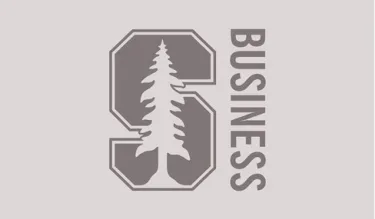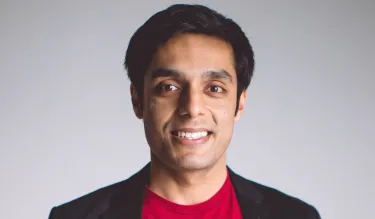Supriya Hobbs, MBA ’18
“It’s a unique window where you have a few years before a fresh springboard into whatever’s next.”
June 13, 2023
Chemical engineer Supriya Hobbs used her deferral time before entering Stanford GSB to manage injectable medicines equipment systems at pharmaceutical giant Eli Lilly & Co. During those two years, she realized process engineering felt too small a canvas for her ambitions.
About Supriya

Hometown
Yardley, Pennsylvania
Education
MBA, Stanford Graduate School of Business (2018)
BS, Chemical Engineering, University of Illinois at Urbana-Champaign (2014)
Professional Experience
Management Consultant, Boston Consulting Group
Process engineer, Eli Lilly & Co.
Current Profile
“I was responsible for a set of equipment in two rooms in one factory in a $20 billion company,” says the management consultant, who now works at Boston Consulting Group. “An MBA was one path to accelerating my moving on to the bigger picture.” We asked Hobbs to explain why deferred enrollment was the right choice for her.
How did you know that an MBA was something you wanted?
In my undergraduate years I was able to do a few different internships in engineering and got a glimpse of what a chemical engineering career looked like. In the summer before my senior year, I realized that as much as I enjoyed engineering, there were other things I wanted to explore as a longer-term career. I realized that perhaps engineering wasn’t the right forever career. So I started Googling “career paths through engineering” and somehow stumbled upon Stanford’s deferred enrollment program. That started the process of thinking through an MBA and eventually applying.
What did you hope to gain by deferring for two years?
I was fresh out of school, and the rule of thumb is to not do your MBA until you have some work experience. Applying early allowed me to think differently about the first couple of years of my career because I knew I had this pivot planned not so far in the future.
Did that impact how you approached your job at Eli Lilly?
It did, in a couple of ways. One, I went in with a mindset to learn everything I can about being an engineer, about working in a manufacturing environment, and to really maximize the learning opportunities of these two years recognizing that it was finite. I also was deliberate about asking questions and having conversations and meeting people who would help me understand the bigger-picture questions. I was able to learn from those conversations with more of a future-looking mindset.
Did you learn anything about yourself during that time that reaffirmed your decision to go to business school?
As much as I enjoyed the day-to-day problem-solving, I confirmed that I liked the big-picture questions. I also think the couple of years I spent working in manufacturing were fundamental to shaping how I think about managing people and interacting with stakeholders in client organizations or in my own organization. We often stay in this bubble of people who are just like us and have the same backgrounds and career paths, and it’s something different to go onto a production floor every day and figure out how to relate to and work with people whose lives have looked different than mine.
Would you have done anything differently?
I might have deferred one extra year to get a complementary experience to what I had.
Explain what you mean by complementary.
An experience at the same company or a different company that looked different than being a process engineer supporting day-to-day manufacturing. Having one more role could have helped me have a broader depth of experience to draw on.
At any point did you reconsider going to business school?
No, that never wavered. I had wanted to go to Stanford for undergrad and didn’t get in, and I told myself, “They’ll want me someday!”
How did you decide it was time to enroll and start your MBA program?
The default was two years, and then you could choose to extend it if you wanted. I felt like two years in my engineering role was enough for me. If I had seen a near-term path to a different type of job, the decision might have looked a little bit different. But by then I was ready to do something else.
Any classes that were particularly influential during your Stanford MBA experience?
As an engineer I tended to view things analytically, sometimes to the detriment of the human side of things. Interpersonal Dynamics, or Touchy Feely, for me was an exercise in self-awareness and self-exploration. It fundamentally changed how I approach relationships. Now that I’m a couple of years into being a manager I see that play out in my interactions with my teams. But even in personal relationships many of the same concepts apply. That class equipped me with the right tools and built the right muscles in understanding how I relate to others and how they relate to me.
Any advice for others contemplating deferred enrollment programs?
Apply. You have nothing to lose. If it doesn’t work, you can always apply again. It’s a unique window where you have a few years before a fresh springboard into whatever’s next. You can think about how to use those deferral years to do something different.
Explore More Stories
Devin Kelsey, MBA ’18

Pulkit Agarwal, MBA ’20
